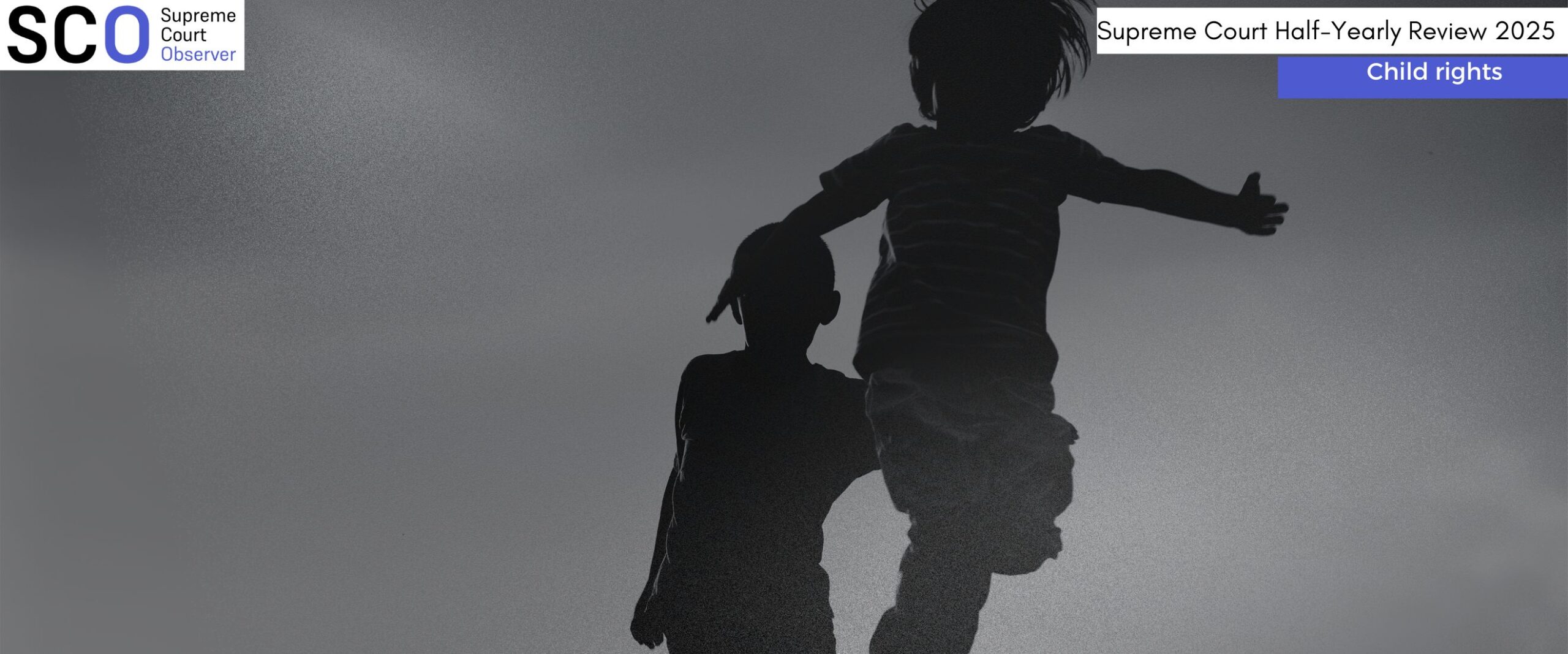Analysis
2025 Supreme Court Half-Yearly Review: Child Rights
The Court maintained a steady beat in cases involving child rights and delivered key decisions concerning POCSO victims

On 14 July 2025, the Supreme Court will return from a seven-week-long Partial Court Working Days break. This marks the beginning of a new term of the top court. In our Half-Yearly Review, we look at the notable rulings from the past six months that mark important developments in child rights.
These decisions addressed issues, ranging from adolescent privacy and reproductive autonomy to child trafficking and domestic violence.
Rehabilitation of victims under POCSO
In a rare decision, a Division Bench of Justices A.S. Oka and Ujjal Bhuyan spared a person convicted under the Protection of Children from Sexual Offences Act, 2012 (POCSO). The Bench noted that the minor had a child with the accused and imprisoning him would work to the detriment of the minor girl and her child. The judges were sure to clarify that this decision was “not a precedent.” Rather, in this instance, the relationship between the accused and the victim was consensual in fact, though not in law.
Significantly, the Bench acknowledged systemic lapses in implementing child protection laws and the failure of State institutions to safeguard the victim. The Court directed that the victim’s family should be rehabilitated. The West Bengal government was directed to provide shelter and education to the victim and the child.
The High Court of Calcutta faced flak for its remarks suggesting that female adolescents have to protect their dignity, integrity and “control” their sexual urges.
Purposive interpretation of the Maternity Act
A Bench of Justices Oka and Bhuyan directed that maternity leave cannot be denied for the birth of a third child. The Court noted that the Maternity Benefit Act, 1961 put a limit on the duration of leave beyond two pregnancies. It did not mean that maternity benefits cannot be extended at all. Further, in this case, the third child was born to the appellant’s second marriage and she did not have custody of her two children from the first marriage. This would mean that this was her first child in her second marriage. The Court directed that maternity leave should be granted to the appellant as per the state rules.
Curbing human trafficking
A Division Bench consisting of J.B. Pardiwala and R. Mahadevan directed State Governments to study and implement a report on human trafficking published by Bharatiya Institute of Research and Development (BIRD) in 2023. The Court was hearing an appeal by child trafficking victims who challenged a bail granted to 13 accused persons by the Allahabad High Court.
The Court directed High Courts to acquire information regarding pending child trafficking trials and directed them to be completed within six months.
The Court criticised the Allahabad High Court’s callous approach in granting bail. It directed that charges be framed against them, with separate prosecutions and an expeditious conclusion to the trial.
Courts must adhere to Juvenile Justice laws
The Supreme Court overturned a sentence of life imprisonment against a person accused of culpable homicide amounting to murder, finding that he was a juvenile at the time of the crime.
The Bench of Justices M.M. Sundresh and Aravind Kumar observed that any failure to give regard to the juvenility of an accused person amounts to a violation of Article 14 and 21. Moreover, it condemned the lapses by the courts during the previous stages for not confirming the juvenility of the child. Further, the Bench noted that claims of juvenility can be raised at any stage of the proceedings as per Section 9(2) of the Juvenile Justice (Care and Protection of Children) Act, 2015.
Implementing the Domestic Violence Act
A Bench of Justices B.V. Nagarathna and S.C. Sharma passed directions for the proper and uniform implementation of the Protection of Women from Domestic Violence Act, 2005 (PWDVA). Further, it directed the Chief Secretaries of all states and Union Territories to designate selected officers as Protection Officers (POs).
Further, the NALSA’s Member Secretary was directed to ensure that free legal aid for aggrieved women is widely publicised through the State, District, and Taluka-level bodies. States and Union Territories were directed to identify and officially notify shelter homes at both the District and Taluka levels within ten weeks.
Statement of child witnesses
A Bench of Justices Vikram Nath and Sanjay Karol held that a conviction in a rape case of a minor can be sustained even in the absence of the victim’s testimony. The Court set aside a decision of the Rajasthan High Court which acquitted the accused on the ground that a statement from the child was absent. Even in the absence of the victim’s testimony, conviction can be sought based on other available evidence.
Keerthana B is an intern at the Supreme Court Observer